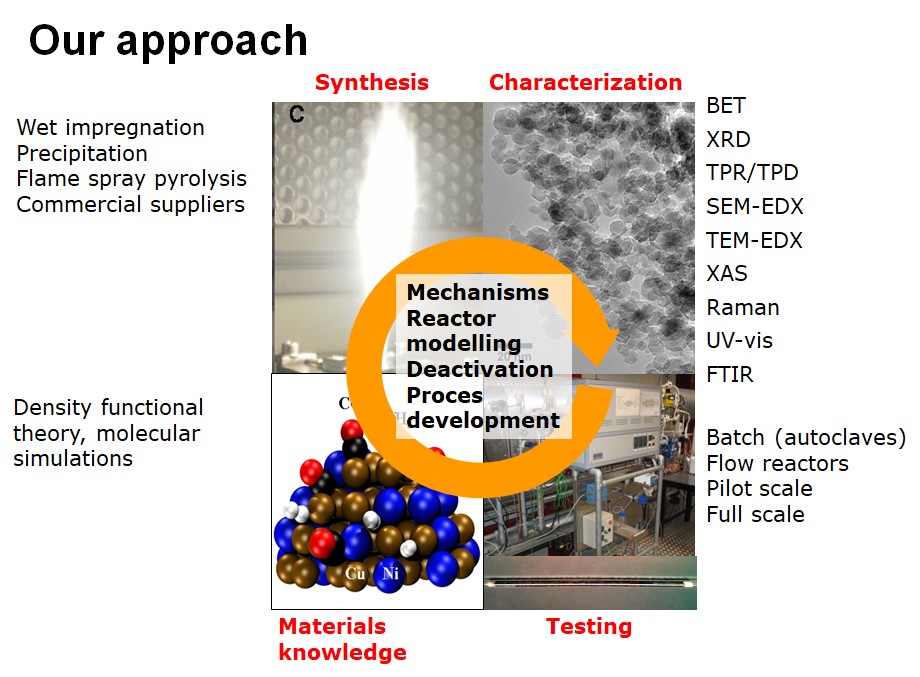Catalysis
Heterogeneous Catalysis
The research within catalysis in CHEC focuses mainly on providing solutions to energy and environmentally related challenges, but also covers parts of green chemistry. The objectives of the research are:
- To synthesize new catalytic materials
- To characterize the materials using spectroscopic and other techniques, and by theoretical means, such as density functional theory calculations, to understand and predict the properties of the materials
- To test the activity and selectivity of the materials in relevant reactions and under industrially relevant conditions, and derive kinetic models including diffusion limitations applicable for reactor design
- To investigate and minimize deactivation of the catalysts under relevant conditions;To model catalytic reactors and thereby obtain an improved understanding of the interplay between the process and the catalyst.
The main part of the work is carried out in our own laboratories, while some parts, particularly advanced catalyst characterization and DFT calculations, are carried out in collaboration with external partners.
Research
Our research strives to follow the philosophy shown in the figure below, which illustrates that a catalytic process is developed through prediction of catalytic properties of materials, synthesis of promising materials, catalyst characterization and testing, and finally process modeling. Ongoing activities deal for example with:
- Catalyst materials synthesis by flame spray pyrolysis and wet chemical methods
- Syngas conversion to methanol and higher alcohols
- Oxidative dehydrogenation of alkanes to alkenes
- Conversion of biomass lignin to fuels and chemicals
- Upgrading of biomass pyrolysis oils and pyrolysis oil reforming for hydrogen production
- Deactivation of catalysts for selective catalytic reduction of NOx on power plants burning biomass Diesel exhaust gas cleaning (soot, NOx and hydrocarbons).
